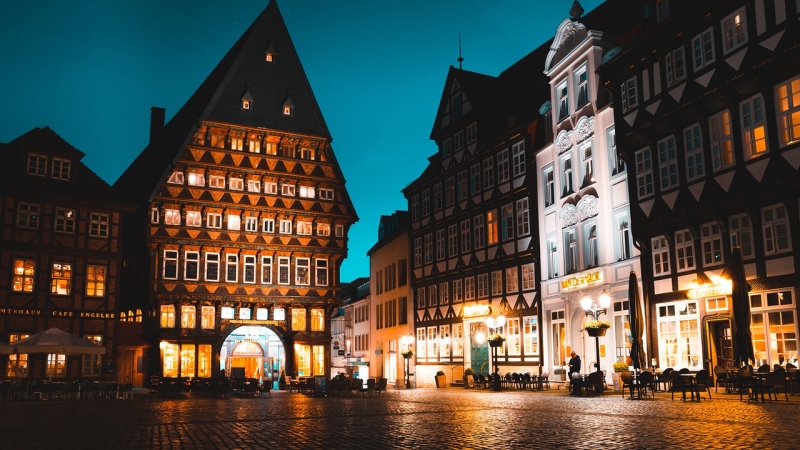Urbanization in the Philippines has been a double-edged sword, bringing about significant economic growth while also exacerbating the issue of informal settlements and housing shortages.

In response to this pressing concern, the Philippine government enacted the Urban Development and Housing Act (UDHA) or Republic Act No. 7279 in 1992.
This comprehensive legislation aims to address the country’s housing crisis, promote socialized housing, and ensure a sustainable approach to urban development.
In this article, we’ll discuss about one of the Philippine laws related to real estate known as the Urban Development and Housing Act (UDHA).
Background and Historical Context
The rapid urbanization of the Philippines during the latter half of the 20th century led to a considerable increase in the number of informal settlers, primarily in Metro Manila and other highly urbanized areas.
With limited access to affordable housing, millions of Filipino families were forced to live in makeshift dwellings, often lacking access to basic services and amenities.
Recognizing the urgent need to address this issue, the government enacted RA 7279 as a landmark legislation to tackle the challenges of urban development and provide adequate housing for the urban poor.
Purpose and Objectives of the Act
The Urban Development and Housing Act aims to promote equitable urban development by providing socialized housing opportunities for the underprivileged and homeless citizens in urban areas.
It seeks to establish a framework for the regularization of informal settlements, create public-private partnerships for housing development, and ensure the efficient use of urban land.
The Act also emphasizes the need for comprehensive planning and proactive involvement of all stakeholders, including local government units (LGUs), the private sector, and the affected communities, in addressing the issues of urban housing and development.
Key Provisions of RA 7279
The Urban Development and Housing Act (RA 7279) outlines a series of provisions designed to address the housing needs of the urban poor and establish guidelines for the development of urban areas. The key provisions of the Act include:
Eviction and Demolition Guidelines
RA 7279 sets forth strict guidelines for the eviction and demolition of informal settlements, prioritizing in-situ (on-site) upgrading and relocation whenever possible.
The Act mandates that evictions must be carried out in a humane manner, with adequate notice and consultation with affected families. It also stipulates that the government must provide proper relocation sites or financial assistance for displaced families.
Land Use and Zoning
The Act requires local government units (LGUs) to incorporate socialized housing programs into their land use and zoning plans. LGUs are mandated to allocate at least 20% of their total land area for socialized housing, ensuring that land is available for the construction of affordable homes for low-income families.
Public-Private Partnerships
RA 7279 encourages public-private partnerships to facilitate the development of socialized housing projects. The Act provides incentives for private developers to participate in these projects, such as tax exemptions and priority access to government financing programs.
Socialized Housing Compliance
To promote the construction of affordable homes, the Act requires private developers of subdivisions and condominiums to allocate at least 20% of their total project cost for socialized housing. This can be achieved through direct construction within the same city or municipality, or by providing land, buildings, or funding to the government for socialized housing projects.
Urban Poor Settlements Regularization
The Act recognizes the need to regularize informal settlements and provide security of tenure for the urban poor. It mandates the government to implement a comprehensive program for the survey, titling, and acquisition of lands occupied by informal settlers, with the goal of providing them with affordable and decent housing.
Financing and Incentives
RA 7279 establishes financing mechanisms for socialized housing, such as the Community Mortgage Program (CMP) and the National Shelter Program (NSP). These programs provide low-interest loans and subsidies to help the urban poor acquire housing.
Additionally, the Act, just like the Comprehensive Agrarian Reform Law, offers various incentives for LGUs, non-government organizations (NGOs), and private developers who actively participate in socialized housing initiatives.
Socialized Housing Programs Under RA 7279

Under the Urban Development and Housing Act (RA 7279), several socialized housing programs have been established to cater to the needs of the urban poor and provide them with affordable housing options. These programs include:
Community Mortgage Program (CMP)
The Community Mortgage Program (CMP) is a financing scheme that enables organized communities of low-income families to collectively secure loans for land acquisition, site development, and house construction.
The program empowers communities by allowing them to purchase and develop land under the concept of community ownership, thus providing them with security of tenure and improved living conditions.
National Shelter Program (NSP)
The National Shelter Program (NSP) is a government initiative that consolidates all housing projects and programs under one umbrella. The NSP aims to provide affordable housing to low-income families through a combination of direct housing provision, financing assistance, and public-private partnerships.
It includes various sub-programs, such as the construction of medium-rise buildings, in-city resettlement projects, and housing assistance for specific sectors, like police and military personnel.
Local Government Unit (LGU) Initiatives
Local Government Units (LGUs) play a crucial role in the implementation of RA 7279, as they are responsible for allocating land and resources for socialized housing projects within their jurisdictions. Many LGUs have launched their own housing programs tailored to the specific needs and circumstances of their constituents.
These initiatives may include the construction of low-cost housing units, the provision of rent-to-own schemes (see Rent Control Act), and the implementation of livelihood programs to enhance the socio-economic well-being of the urban poor.
Other Government-Initiated Programs
Aside from the CMP and NSP, the Philippine government has also introduced other housing programs to address the needs of various sectors in society.
These programs include the Pag-IBIG Fund Affordable Housing Program, which offers low-interest loans for housing acquisition and construction, and the Government Employees Housing Program, which provides affordable housing options for public sector employees.
Additionally, non-government organizations (NGOs) and private developers have initiated their own socialized housing projects in partnership with government agencies, contributing to the overall efforts to address the housing needs of the urban poor.
Challenges in Implementing RA 7279
Despite the noble intentions of the Urban Development and Housing Act (RA 7279), its implementation has faced several challenges over the years. These challenges include:
Land Acquisition and Ownership Issues
One of the major challenges in implementing RA 7279 is the difficulty in acquiring suitable land for socialized housing projects. Land ownership disputes, high land prices, and the reluctance of some private landowners to sell their properties for socialized housing have hindered the process.
Additionally, the preference for in-city relocation often leads to a scarcity of available land, further complicating the land acquisition process.
Funding Constraints
While the Philippine government has allocated funds for socialized housing programs, the amount is often insufficient to meet the growing demand for affordable homes.
The limited budget constrains the government’s ability to provide adequate housing units, improve existing settlements, and relocate displaced families.
This funding gap has also affected the sustainability and effectiveness of housing programs, often resulting in substandard housing units or incomplete projects.
Coordination Among Government Agencies
Efficient coordination among various government agencies is crucial for the successful implementation of RA 7279. However, overlapping responsibilities and bureaucracy among these agencies have sometimes led to delays in the implementation of housing projects.
The lack of a centralized system to monitor and evaluate the progress of socialized housing initiatives has also made it difficult to ensure the effective use of resources and the timely completion of projects.
Resistance From Private Sector and Landowners
The participation of the private sector is vital for the success of RA 7279, as they are required to allocate a percentage of their projects for socialized housing. However, some developers view this requirement as a burden and resist compliance, leading to a shortfall in the provision of affordable homes.
Similarly, landowners may be hesitant to sell their properties for socialized housing projects due to concerns about property values and potential social issues.
Balancing Urban Development and Environmental Concerns
The rapid urbanization in the Philippines has led to increased pressure on the environment, including the depletion of natural resources, loss of biodiversity, and pollution. Implementing RA 7279 requires striking a balance between providing affordable housing and ensuring sustainable urban development.
This involves carefully considering the location of housing projects, incorporating green building practices, and promoting the efficient use of resources to minimize the negative impact on the environment.
Success Stories and Best Practices

Despite the challenges faced in implementing the Urban Development and Housing Act (RA 7279), there have been notable success stories and best practices that can serve as models for future socialized housing initiatives. These include:
Notable Socialized Housing Projects
Several socialized housing projects in the Philippines have successfully provided affordable homes for the urban poor while incorporating sustainable and community-centered practices.
Examples include the Gawad Kalinga (GK) Enchanted Farm, a community-driven housing and livelihood project that promotes social entrepreneurship and sustainable living, and the Linao-Lipata housing project in Albay, which provides disaster-resilient homes for families affected by natural calamities.
Innovative Public-Private Partnership Models
Public-private partnerships have played a crucial role in the implementation of RA 7279. Innovative models, such as the joint venture between the Quezon City government and a private developer to construct a medium-rise building (MRB) for informal settlers, demonstrate the potential of such collaborations in providing affordable and decent homes for the urban poor.
These partnerships not only bring in private sector resources and expertise but also ensure that socialized housing projects are aligned with the broader urban development plans.
Proactive Local Government Initiatives
Local Government Units (LGUs) that have actively embraced their role in providing socialized housing have achieved significant success in addressing the needs of their constituents.
One such example is the city of Valenzuela, which has implemented a comprehensive housing program that includes the construction of low-cost housing units, in-city relocation projects, and livelihood programs to improve the socio-economic well-being of the urban poor. These proactive initiatives demonstrate the importance of LGU involvement in the successful implementation of RA 7279.
Community-Led and Participatory Approaches
Socialized housing projects that involve the active participation of the beneficiary communities often lead to more sustainable and successful outcomes.
The Community Mortgage Program (CMP), for instance, enables organized communities to collectively secure loans for land acquisition and housing development, fostering a sense of ownership and responsibility among the beneficiaries.
Involving the urban poor in the planning, implementation, and monitoring of housing projects not only empowers them but also ensures that the projects are tailored to their needs and priorities.
RA 7279’s Impact on the Urban Poor
The Urban Development and Housing Act (RA 7279) has had a significant impact on the lives of the urban poor in the Philippines. While challenges persist, the Act has brought about several positive changes for this marginalized population, including:
Reduction in Informal Settlements
RA 7279 has led to the regularization of numerous informal settlements, providing secure land tenure for the urban poor. Through various socialized housing programs and initiatives, the Act has contributed to the reduction of informal settlements in the Philippines, particularly in highly urbanized areas such as Metro Manila.
Improvement in Living Conditions
The implementation of RA 7279 has resulted in the construction of affordable housing units and the upgrading of existing settlements, leading to improved living conditions for the urban poor.
These housing projects often include basic services and amenities, such as water supply, electricity, and sanitation facilities, which greatly enhance the quality of life for the beneficiaries.
Access to Basic Services and Amenities
RA 7279 mandates that socialized housing projects be located within accessible areas that provide residents with easy access to basic services, such as schools, hospitals, and transportation facilities.
This ensures that the urban poor not only have a decent place to live but also have access to essential services that contribute to their overall well-being and development.
Socio-Economic Benefits for the Urban Poor
The provision of affordable housing under RA 7279 has had several socio-economic benefits for the urban poor, including increased financial stability, enhanced employment opportunities, and improved access to education and healthcare.
Additionally, community-driven housing initiatives, such as the Community Mortgage Program (CMP), empower the urban poor by fostering a sense of ownership and self-reliance, which can lead to increased social cohesion and community development.
Comparative Analysis: RA 7279 and Other Countries’ Housing Policies

Examining the Urban Development and Housing Act (RA 7279) in the context of housing policies in other countries can provide valuable insights and lessons that may help improve the effectiveness of the Act. Here, we compare RA 7279 with housing policies from other nations, focusing on the key features and differences.
Singapore’s Housing Development Board (HDB)
Singapore is often hailed for its successful public housing policy, with the Housing Development Board (HDB) being the main agency responsible for providing affordable homes for its citizens. Unlike the Philippines, Singapore adopts a centralized approach, with the HDB handling the planning, development, and management of housing projects.
Moreover, Singapore’s public housing policy emphasizes the role of mandatory savings through the Central Provident Fund, which enables citizens to finance their housing needs. While RA 7279 focuses on addressing the needs of the urban poor, Singapore’s HDB caters to a broader range of income groups, promoting social integration and community cohesion.
Brazil’s Minha Casa, Minha Vida Program
Brazil’s Minha Casa, Minha Vida (My House, My Life) Program is a large-scale housing initiative aimed at providing affordable homes to low-income families. Like RA 7279, the program encourages public-private partnerships and offers financial incentives to private developers to build social housing projects.
However, the Minha Casa, Minha Vida Program has faced criticism for constructing housing projects in remote locations with limited access to public services and infrastructure, an issue that RA 7279 seeks to address by mandating accessible locations for socialized housing projects.
India’s Pradhan Mantri Awas Yojana (PMAY)
India’s Pradhan Mantri Awas Yojana (PMAY) is a government initiative that aims to provide affordable housing for all by 2022. Similar to RA 7279, the PMAY encourages public-private partnerships and offers financial assistance to the urban poor through various schemes, such as the Credit Linked Subsidy Scheme (CLSS) and the Affordable Housing in Partnership (AHP) initiative.
The PMAY also shares RA 7279’s focus on community-driven and participatory approaches, involving beneficiaries in the planning and implementation of housing projects.
These comparative analyses highlight the varying approaches taken by different countries to address their housing needs. While RA 7279 has made progress in providing affordable housing for the urban poor in the Philippines, lessons from other countries’ housing policies can offer valuable insights to further enhance the effectiveness and impact of the Act.
The Future of Urban Development and Housing in the Philippines
As urbanization continues to progress in the Philippines, the demand for affordable housing will only increase. The Urban Development and Housing Act (RA 7279) has laid the foundation for addressing these challenges, but the future of urban development and housing in the country will depend on several factors, including:
Policy Reforms and Improvements
The successful implementation of RA 7279 requires continuous evaluation and adjustment of its policies and programs to address the evolving needs of the urban poor.
This may involve amending certain provisions of the Act, streamlining bureaucratic processes, and improving coordination among various government agencies to enhance the efficiency and effectiveness of socialized housing initiatives.
Embracing Technological Advancements
The future of urban development and housing in the Philippines will likely benefit from the adoption of new technologies and innovative building practices.
By embracing advancements such as green building technologies, modular construction, and digital solutions for land registration and titling, the Philippines can improve the quality, affordability, and sustainability of housing projects.
Strengthening Public-Private Partnerships
The success of socialized housing initiatives under RA 7279 hinges on the active participation of both the public and private sectors. The future of urban development in the Philippines will require further strengthening of public-private partnerships, with the government providing incentives and support to private developers, while ensuring that they adhere to the mandated requirements for socialized housing.
Focus on Sustainable and Inclusive Urban Planning
As the Philippines grapples with rapid urbanization and its accompanying challenges, there is a growing need for sustainable and inclusive urban planning. This involves not only the provision of affordable housing but also the integration of environmental concerns, disaster resilience, and social inclusivity into urban development policies and projects.
By prioritizing sustainability and inclusivity, the Philippines can ensure that its cities become more livable and resilient for all residents, including the urban poor.
Capacity Building and Community Empowerment
The future of urban development and housing in the Philippines will depend on the empowerment of local communities and the strengthening of their capacities. This can be achieved through continuous training, technical assistance, and access to resources for Local Government Units (LGUs), non-government organizations (NGOs), and the urban poor themselves.
By empowering these stakeholders, they can actively participate in and contribute to the planning, implementation, and monitoring of housing projects, ensuring that their needs and priorities are adequately addressed.
Ultimately, the future of urban development and housing in the Philippines will depend on the collective efforts of various stakeholders, including the government, private sector, civil society, and the urban poor themselves.
By learning from past experiences and embracing innovative solutions, the Philippines can work towards creating a more equitable, sustainable, and inclusive urban landscape for all its citizens.
A Final Thought
The Urban Development and Housing Act (RA 7279) has been a pivotal piece of legislation in addressing the housing needs of the urban poor in the Philippines. By establishing socialized housing programs, fostering public-private partnerships, and empowering local communities, the Act has made significant strides in providing affordable homes and improving living conditions for this marginalized population.
However, as urbanization continues to accelerate, the challenges surrounding urban development and housing remain complex and multifaceted.
To ensure the continued success of RA 7279, it is crucial for the Philippines to learn from its experiences, as well as from housing policies in other countries. By embracing policy reforms, technological advancements, sustainable urban planning, and community empowerment, the country can work towards creating a more equitable and inclusive urban landscape for all its citizens.
The future of urban development and housing in the Philippines will ultimately depend on the collective efforts of the government, the private sector, civil society, and the urban poor themselves, working together towards a shared vision of a better and more resilient urban environment.






